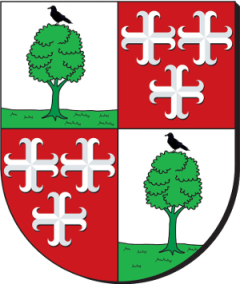A Zeeuw in service to the Spanish king
Philibert of Serooskerke held the highest administrative positions in Zeeland and Bergen op Zoom during the beginning of the Uprising. At a time when an increasing number of northern administrators and nobles sided with Calvinism, Philibert remained loyal to Catholicism and the Spanish throne, and consequently found himself on the wrong side of history.
Philibert’s actions proved essential to the course of the early years of the Uprising. This biography offers a fascinating insight into a side of the Uprising that remained structurally underexposed.
- Early reformation in Zeeland port cities through trade contacts with Rouaan, La Rochelle, Le Havre.
- Report by chief bailiff Van Serooskerke to stadholder William of Orange and governess Margaret of Parma on Norman sailors who – preceded by drummers and pipers – marched through Middelburg ‘singing psalms in the Geneva manner’, where they occupied the Franciscan church.
- Historical links between the Uprising and the the French Religious Wars. References to the French confession of faith and the emergence of national identities partly based on faith.
- Hage sermons on Walcheren by the Picard cobbler/preacher Obry.
- The French origins of the iconoclasm in Middelburg.
- The failed invasion of Walcheren by the Count of Toulouse, brother of Philip of Marnix of St Aldegonde; their father was a Huguenot from Burgundy, originally Savoyard.
- William of Orange’s struggle of conscience when considering enlisting French military aid, which would inevitably bring him into the Calvinist camp.
- The advice given by Huguenot leader Admiral Gaspard de Coligny to Orange to transform the Sea Beggars into a regular Navy. The criticism in historiography of this ‘sovereign act’.
- The disastrous effect of Bartholomew’s Night or Paris Blood Wedding dated 23 Aug 1572 – in which Coligny died – on the campaign of Louis of Nassau who was forced to abandon the occupation of Mons (Mons) when the promised Huguenot aid failed to materialise; characterised by the author as a tipping point in our ‘Eighty Years’ War’.
- The military exploits of brothers Charles and Louis de Boisot (of Protestant Burgundian descent), killed in the service of Orange.
- Interventions on South Beveland, Duiveland and Schouwen by Huguenot units in the service of Orange.
- Failed Huguenot Republic on Walcheren (unique documentation). The arrogant behaviour of Huguenot occupation troops on this island and their replacement by the English and Scots.
- The role of defector Champagney (brother of Cardinal Granvelle) who had earlier been rewarded by Philip II for preventing the transformation of Besançon into a “Burgundian Geneva”.
- The turnaround of the “vile Wallonian nobility” (a tautology according to Fruin!) in response to radical Calvinism in the Flemish and Brabant towns (also beginning in Holland).
The book is an adaptation of the dissertation which Adriaan van Riemsdijk successfully defended in November 2021 to obtain the degree of doctor at the Vrije Universiteit in Amsterdam, Faculty of Religion and Theology. It relays numerous historical facts that influenced the course of the Uprising and church history, but went unmentioned in general historiography. Many of these are related to French religious history.
The book is on sale for €35 via the website of Verloren Publishers, specialists in historical editions.
Publication of this book was made possible thanks to a financial contribution from the Hurgronje Family Fund.

0 comments